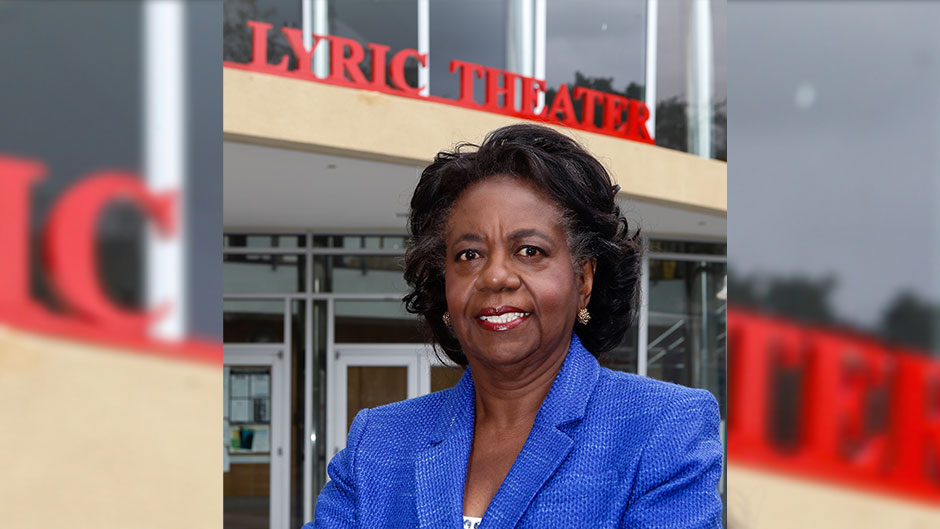For many, the stories of Black Miami’s history and Dorothy Jenkins Fields are entwined; you cannot mention one without the other.
“There is no place you can go in Dade-County and speak of the history of African Americans without referring to The Black Archives or its founder, Dr. Dorothy Jenkins Fields,” said then-Congresswoman Carrie Meek in 1997 when she issued a proclamation honoring The Black Archives History & Research Foundation of South Florida.
Since 1974, Jenkins Fields has gathered the history of African Americans in Miami-Dade County, creating The Black Archives, a nonprofit manuscript and photographic community repository. Following 50 years dedicated to preserving Black history and culture in Miami-Dade County, Jenkins Fields has been named a 2024-2025 Creative Futures Fellow by the Center for Global Black Studies.
The University Libraries are co-hosting Jenkins Fields, who will be conducting archival research at Richter Library.
“It will be a pleasure to work with Dr. Jenkins Fields during the upcoming academic year,” said Beatrice Colastin Skokan, head of manuscripts and archives management at Richter Library. “She has been an inspiration for the last 20 years of my professional career as an archivist and curator of the cultural contributions of the African diaspora. I look forward to our upcoming collaboration.”
Jenkins Fields will also be teaching students in the College of Arts and Sciences how to use the archives for historical research and scholarship. She will assist Edmund Abaka, the director of graduate studies and an associate professor in the Department of History, with his graduate-level class on researching the African Diaspora in South Florida.
In 1903, Jenkins Fields’ maternal grandparents, immigrants from Harbour Island, Bahamas, settled in Overtown, initially labeled Colored Town, on land assigned solely to Black laborers in Miami. Seeking education for their seven children, Jenkins Fields’ grandparents and other Black residents eventually bought land, building a self-contained community.
Jenkins Fields’ uncle often told her that he recalled walking around Colored Town as a young boy and hearing older Black men boasting about how they “built” Miami. Although they never revealed how they participated, it was a source of pride that left her uncle curious. As a young teacher searching for curriculum she could use to teach her students during the 1974 U.S. Bicentennial, Jenkins Fields discovered the answer. She found the original city charter listing the Black and white men who voted to incorporate the City of Miami on July 28, 1896. Next to each man’s name was his race, and Jenkins Fields realized that the Black voters were needed to incorporate. This exciting finding led her to pursue her interest in archival work, and she went on to earn a certification in archives administration, as well as a Ph.D. in 20th century African American history, historic preservation, and public history.
“To me, archives administration, preserving and accessing the Black experience, is more than just a job,” Jenkins Fields said. “It requires curiosity, purpose, and passion. It’s important that aspiring archivists study the era to understand the content they are collecting.”
The collection Jenkins Fields started, which includes photographs, documents, and oral histories, represents people who experienced the Jim Crow Era and beyond. In addition to working as an independent historical researcher, she also serves as a consultant, adjunct professor at various universities, and doctoral advisor.
“My intent is to encourage undergraduates and others to use curiosity, purpose, passion, and vision to promote understanding of the Black experience in Miami-Dade County,” Jenkins Fields said.
Among her many accomplishments preserving Black history in Miami-Dade are saving the Lyric Theatre and other sites in Historic Overtown from demise.
Jenkins Fields’ other notable achievements include writing a proposal that created Miami-Dade’s Black Photographic Archives, researching Miami-Dade’s Black Heritage Trail, developing Black history curriculum for Miami-Dade County Public Schools, helping to organize the county’s Women’s Park, and serving 19 years on the county’s Historic Preservation Board, including five years as chair.
“Now it is rewarding for me to see, support, and collaborate with community and academic projects that have emerged since I began in 1974 the movement to preserve and to present Miami-Dade County’s Black history,” Jenkins Fields said. “So much research is yet to be discovered and recorded, including media forms not yet invented. I encourage collaboration, not competition, to promote understanding of the Black experience in Miami-Dade County.”
“Of all that I have done, my proudest accomplishments are my grandchildren and daughters whose careers mirror mine,” she added.

